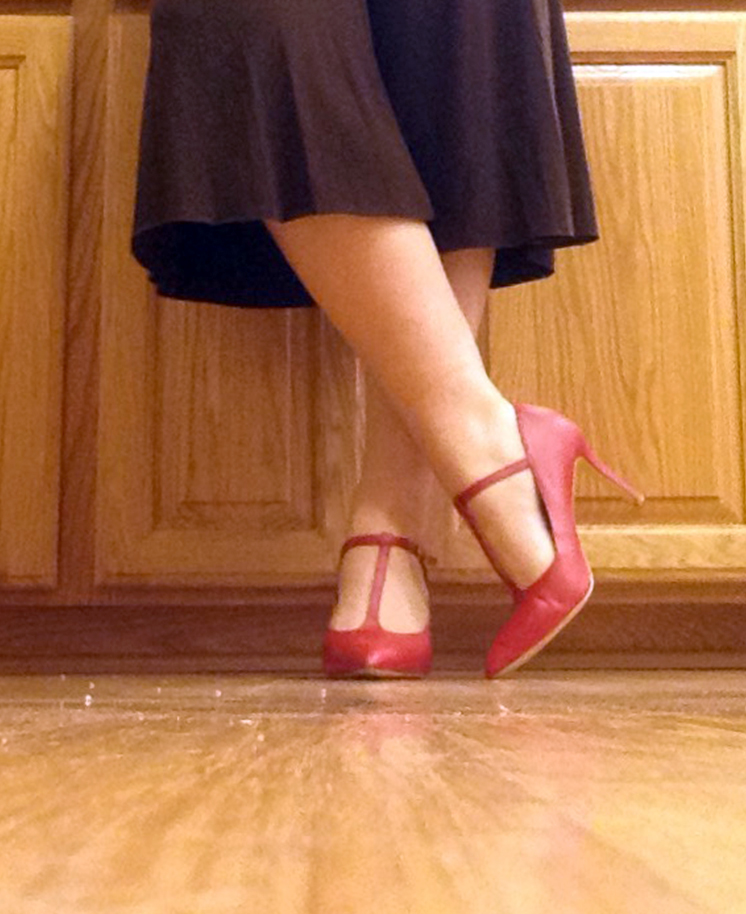By Theresa Tyree
The first time I talked about marriage with a partner was when I was sixteen. It wasn’t a serious talk, more like a vivid daydream between my partner and me. We would go back and forth, adding on details, deciding whom to invite and who not to invite. Then I talked about what I wanted to wear, and he froze.
“Really?” he asked me. “Pants?”
I blinked, surprised by his question. “Well, yeah. I mean, why not? You’ve seen my gaucho pants. They’re all flowy and gorgeous—”
“Why wouldn’t you want to wear a dress?”
I frowned. His question stung. He made it sound like there was something wrong with me for wanting to wear anything else. “What does it matter? It’s my wedding.”
“No, it’s our wedding.” He sighed and took my hand. “Say you’ll wear the dress; for me.”
I didn’t answer. I changed the subject. I started talking about the catering instead. This wasn’t fun anymore. The daydream was broken, the warmth of the conversation gone. When I left to go home that night, I was contemplative on the road. It wasn’t like I was all that opposed to wearing a dress. The thought had crossed my mind so many times before as a child. There were at least fifteen different wedding dresses I’d marveled over and coveted for my own, the first of which being Ariel’s from The Little Mermaid – but the way he had asked me to wear it for him bothered me.
I didn’t marry him. I moved on, fell in love with a different man, then fell in love with women. Women were new. Women were different. They didn’t care if I wanted to wear pants to my wedding. They didn’t care that I liked the idea of wearing red or black as part of my wedding ensemble.
Yet I found myself confronted with the same feeling I’d had as a contemplative sixteen-year-old on the road home from her boyfriend’s house when my second girlfriend asked me not to wear high heels out to dinner with her.
I paused, balanced on one foot, one shoe on and the other dangling from my fingers halfway down my calf. “Why?” I asked her. I cracked a smile and tried to play it off, constructing a reason for her request that didn’t make me feel cold and hollow inside. “You don’t like it when I’m that much taller than you?” I joked.
Her mouth twisted into the judgmental grimace she used when she found something distasteful. “They don’t suit you,” she told me. “I’m the girly one in this relationship. You embody our more masculine traits.” She batted her plump, mascaraed eyelashes at me and gave me her best don’t-hateme-because-you-know-I’m-right smile.
Something went cold in the core of me, running from my head through my stomach and down to my groin. It made me want to cross my legs and hide from her. This wasn’t a feeling I was used to having with a woman who usually set me on fire with her laugh or the set of her eyes. I wasn’t used to seeing that particular twist of lip pointed at me. I stopped balancing and stood on both my feet—still one shoe off, the other on. “Are you saying I’m too butch for heels?”
She scoffed and rolled her eyes. “Can’t you just do it for me?”
I lied and told her that my slacks would drag on the ground if I didn’t wear heels with them. She passive-aggressively bashed my femininity through dinner, saying things like how cute I’d be with a shorter, more masculine haircut. We broke up soon after that. I was surprised. I hadn’t expected a woman to need me to fulfill a gender role in a same-sex relationship. Then again, I hadn’t expected a partner to need me to wear a dress to help him maintain his own ideal of masculinity either. My standards changed again, and I started dating less – but I can’t say I’m any less satisfied with life. If anything, it’s more fulfilling: only getting close with those who let me wear things for me.
Theresa Tyree holds an MA in Book Publishing and currently works as a freelance editor and copywriter. Follow her on Twitter at @TheresaTyree or see her blog at noodlesfromtomorrow.blogspot.com.

